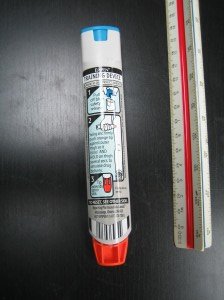Fire ants are known to be very aggressive insects with bites that can cause pain due to the venom that is injected into the skin. When hiking in the wilderness or outdoors, you have to be careful not to disturb a nest since the fire ants can swarm on your feet and legs and deliver several stings. These stings will instantly turn red in color and start to itch. In no time, the fire ant bites can develop into blisters known as pustules. As much as possible, you have to avoid fire ants so that you will not end up stung. In case an individual gets stung, there are several first aid measures and treatment options that you can perform for relief from the itchiness and pain.
Treatment for fire ant stings
Removal of the fire ants
Initially, you have to remove all the fire ants from the skin of the individual who sustained the fire ant bites. If the individual accidentally stepped on a nest, the fire ants will quickly flock on the feet and legs. Once the ants start biting, they can cling on the skin. Shaking, spraying with water or even jumping will not remove them all. You have to wipe off the ants using your hand or a towel.
Clean the sting sites
Once all the fires ants have been removed from the skin, you have to wash the sting sites using water and soap. Make sure that you will thoroughly rinse the affected areas. This will help eliminate any venom as well as prevent infection from developing.
Treating the pain
It is a known fact that the fire ant bites can cause pain. Apply a cold pack or ice wrapped in a cloth or towel in order to minimize the pain and swelling. You can even apply a mixture comprised of half water and half bleach since it helps reduce pain and can even prevent the pustules from developing.
Relief for itchiness

For the itchiness, you can apply a topical corticosteroid such as a topical anti-itch ointment or hydrocortisone cream on the affected area. You can also use aloe vera as a natural anti-itch remedy if it is available. Oral antihistamine medications can also help relieve the itchiness.
Treating severe reactions
In some individuals, they are susceptible to develop a life-threatening allergic reaction to fire ant bites which is called an anaphylaxis. If the individual complains about chest pain, difficulty breathing, severe swelling, nausea and faintness after the fire ants stung, it is important to seek medical help right away. In case the individual already experienced a severe allergic reaction from insect bites, he/she might have an EpiPen on hand. You have to administer it once the initial sign of an allergic reaction develops and call for emergency assistance or take him/her directly to the emergency department at the nearest hospital.
